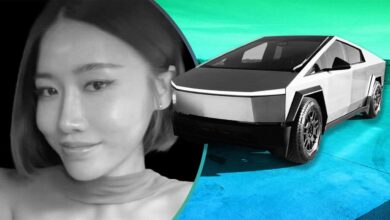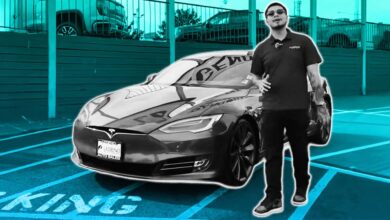What’s Next For The EV Market

Longtime readers of InsideEVs know that I think about the concept of “entrenchment” quite a bit. It’s the term I use to describe the way the world—but the United States in particular—has kind of outsourced much of its mobility needs to car companies.
This has led those companies to be risk-averse, wired for incremental change over rapid disruption and built on the general assumption that customers will keep showing up like they always have. But electric cars, the shift to software-defined vehicles and the rise of China’s auto sector have thrown all of that into chaos.
Now, as the United States—the world’s second-largest new car market—withdraws policy support for EVs, nobody gets the luxury of phoning it in anymore.
That kicks off this Monday, post-Big Beautiful Bill edition of Critical Materials, our morning roundup of industry and technology news. Also on deck today: how China’s Xiaomi did what Apple couldn’t in the car space, and Tesla CEO Elon Musk just can’t keep himself out of politics. Let’s dig in.
30%: The EV Race In America Won’t Suffer Fools Anymore

Ionna Rechargery: Apex, North Carolina
Photo by: John Voelcker
Now that the U.S. is backing off on tougher fuel economy standards and pulling the EV tax credits, buying or leasing one is due to get more expensive. And the overall market is expected to slow down in the coming years. But this trend will coincide with China, Europe and other regions accelerating EV adoption. Even President Donald Trump seems bullish on hybrid cars, which are selling in droves at the moment.
The point is this: any automaker that wants to compete globally can’t back off on electrification. While some may breathe a sigh of relief and assume America’s EV reversal means a return to gas power—you know, the kind of entrenched stuff they know how to do because they’ve always done it—that isn’t in step with the technological progress.
This is all to say that even if automakers slow down their EV rollouts now, they have no choice but to keep investing and developing cheaper, better electric products that can compete on their own merits without tax breaks.
To be clear, this isn’t an argument for ending the incentives; that’s a highly disruptive move that’s sending shockwaves through the industry. But it is the reality on the ground. This is America, and in America, you go it alone.
I was inspired to write this take after reading a LinkedIn post from Christopher Harto, who is Consumer Reports‘ Senior Transportation and Policy Analyst, and one of our most-quoted experts in the space.
“The challenge for automakers that understand that electric is the future will be to deliver a compelling and polished product at a price that’s much closer to the price of competing gas-powered vehicles,” Harto wrote. “Automakers that hit this mark are likely to find a very enthusiastic customer base. Those that miss this mark will continue to struggle with vehicles languishing on lots and angry dealers.
He predicts that the U.S. electric market will continue to grow, albeit more slowly, then really pick up in the next two to five years—much of what the industry was already expecting. And by then, these companies had better be ready to compete. “The real competition starts now. There will be no more participation trophies,” Harto said.
We’re not big on those in America, either.
So, where do automakers go from here? We intend to find out soon enough. Toyota was once the king of EV participation trophies, but even it seems to be getting better at this. Honda, which re-skins a General Motors car for its sole EV in America, didn’t miss a beat to back off on its future plans. I doubt Hyundai and Kia will do the same. Rivian has a tough year ahead, but also a huge lifeline from Volkswagen and a promising future lineup. And GM and Ford are now in a big battery technology race that neither can afford to abandon.
The future is already here. Now we’re going to see who’s serious about meeting it.
60%: Xiaomi Did What Apple Couldn’t

Photo by: Xiaomi
China’s Xiaomi YU7 and SU7 really do seem to be what the Apple Car could’ve been: high-tech, electric and deeply connected to all your other Xiaomi devices. Heck, these two even support Apple CarPlay.
Xiaomi chairman and founder Lei Jun even made sure to draw comparisons to the Apple Car at the YU7’s debut event two weeks ago. And today, Bloomberg has a look at what went right with Xiaomi that went well wrong with Apple:
The collapse of Apple’s moonshot car program has only underscored the effectiveness of Xiaomi’s grounded approach, which took inspiration from proven designs from Tesla Inc. and Porsche Automobil Holding SE while staying true to the affordable ethos that’s made it a cult brand for Gen Z consumers.
Crucially, it also launched into the most fertile EV ecosystem in the world — China. With state subsidies, existing charging infrastructure and a ready-made supply chain, Xiaomi had a structural tailwind Apple lacked.
Apple’s car project, internally dubbed Project Titan, failed in large part because it wasn’t just an EV — it was at one point an attempt to leapfrog the auto industry with a fully autonomous, Level 5 self-driving machine. Its goals were lofty and the direction constantly shifting, the result being over a decade of effort with nothing to show. Lei, 55, was comparatively stingy with time and resources and staked his personal reputation on the endeavor, claiming that making cars would be his “last entrepreneurial project.”
Oh, and Xiaomi poached the heck out of China’s existing auto industry talent, namely the Geely Group, the owner of Volvo and Polestar:
Xiaomi headhunters also courted Geely staff intensely, according to people familiar with the matter. While it’s common for talent to move between companies in the same industry, it was unusual to see this level of aggressiveness around recruitment, the people said, asking not to be identified discussing information that’s private. Geely didn’t respond to a request for comment.
Besides assembling top Chinese automaking talent, Lei made a prescient bet on investing in a self-controlled supply chain — insulating Xiaomi’s operation from manufacturing vagaries. This came from painful lessons learned in Xiaomi’s early smartphone-producing days, when external suppliers would cut off components unpredictably.
Xiaomi said it plans to start exporting cars out of China in 2027, and my guess is that Europe is up first. Does any car company want to slow down when this is what they’re up against?
90%: Elon Musk Can’t Quit Politics, Even If He Should

Photo by: InsideEVs
Meanwhile, Tesla CEO Elon Musk has gone from being Trump’s “First Buddy” to being vaguely threatened with deportation. Many Musk-watchers didn’t think that partnership would last forever, but few could’ve anticipated how violently it would explode.
Musk opposed Trump’s Big Beautiful Bill on the grounds that it will hurt clean energy subsidies while increasing the national debt, and in response, he says he’s making his own political party: the America Party.
Why does this matter for the EV world? Because pretty much everyone involved wishes he wouldn’t, reports CNBC:
Now the tech billionaire’s reinvolvement in the political arena is making investors nervous.
“Very simply, Musk diving deeper into politics and now trying to take on the Beltway establishment is exactly the opposite direction that Tesla investors/shareholders want him to take during this crucial period for the Tesla story,” Dan Ives, global head of technology research at Wedbush Securities, said in a note Sunday.
“While the core Musk supporters will back Musk at every turn no matter what, there is broader sense of exhaustion from many Tesla investors that Musk keeps heading down the political track,” he wrote.
Musk’s previous political foray earned him Trump’s praise in the early days, but he has since drawn the ire of the U.S. president.
Tesla’s stock was down about 7% this morning. And it’s understandable: it’s awfully hard to parse what good has come from Musk’s foray into politics, besides perhaps pushing for a unified autonomous vehicle regulation standard. It’s probably best if he could just stick to cars moving forward.
100%: Which Automaker Will Succeed Even Without Tax Credits?

Photo by: InsideEVs
As I’ve written before, automakers who managed to make good EV investments before this are in better shape than those that didn’t. But it’s a serious moment that calls for a serious strategy. Who are you betting on? Let us know in the comments.
Contact the author: patrick.george@insideevs.com
Source link



